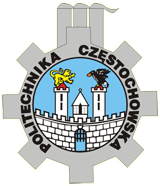„Memory and Data Parallelism on Multi- and Manycore Platforms“
at the PPAM 2011
Background
The peak performance of modern microprocessors is still doubling every 18 months as it has been the case for years according to Moore's Law. However, this improvement is now achieved via more parallelism on all levels, as reflected by the strong trend towards multi- and manycore architectures, but also towards more data parallelism on the instruction level. The latter becomes apparent in the increasing size of SIMD units and vector registers, and can also be observed in GPGPUs and other accelerator hardware. In addition, neither memory latency nor memory bandwidth have been able to keep up with the exponential growth in computational speed, nor are they likely to do so in the imminent future. As a consequence the already existing gap between processor and memory performance is steadily growing.
Exploiting the performance available on modern computing platforms has therefore become a difficult job. Multi-level caches that can be dedicated to or are shared between the processor cores, as well as NUMA-style memory access have to be considered. Algorithms and implementations have to take care of data parallelism. And critical parts of the code, especially those operating on simple regular data structures (arrays, etc.), might have to be offloaded to dedicated accelerators.
Hence, in our workshop, we want to address all kinds of memory- and data-parallelism-related issues for high performance computing on multi- and manycore-based architectures. Areas of interest for workshop submissions therefore include, but are not limited to:
- Hardware-aware, compute- and memory-intensive simulations of real-world problems from electrical, mechanical, civil, or medical engineering requiring parallelisation on multicore platforms.
- Architecture-aware, and particularly multi- and manycore-aware approaches in both implementation and algorithm design, including scalability studies.
- Tools for performance and cache behavior analysis (including cache simulation) for parallel systems with multicore processors, as well as respective cache performance studies.
- Parallelisation with appropriate programming models and tool support for multicore and hybrid platforms.
- Performance studies and first experiences on the latest multi- or many-core processors, as well as on accelerator hardware.
- Ease-of-use for accelerator-based platforms, such as GPGPUs or Many Integrated Core architectures.
- Impact of data parallelism through use of sophisticated vector units.
Paper Submission and Publication
All rules of paper submission of the PPAM conference apply. In particular:
- Papers will be refereed and accepted on the basis of their scientific merit and relevance to the Workshop topics.
- Papers presented at the Workshop will be included into the conference proceedings and published after the conference by Springer in the LNCS series.
- Before the Workshop, abstracts of accepted papers will be posted on its WWW site.
- Authors should submit papers (PDF files) to the online submission system before May 15, 2011. Papers are not to exceed 10 pages (LNCS style).
- Final camera-ready versions of accepted papers will be required by October 31, 2011.
Dates
Submission of Papers: May 15, 2011
Notification of Acceptance: June 15, 2011
Conference: September 11-14, 2011
Camera-Ready Papers: Oct 31, 2011
Session Organizers
Michael Bader, Universität Stuttgart, Germany
Carsten Trinitis, Technische Universität München, Germany
Josef Weidendorfer, Technische Universität München, Germany





